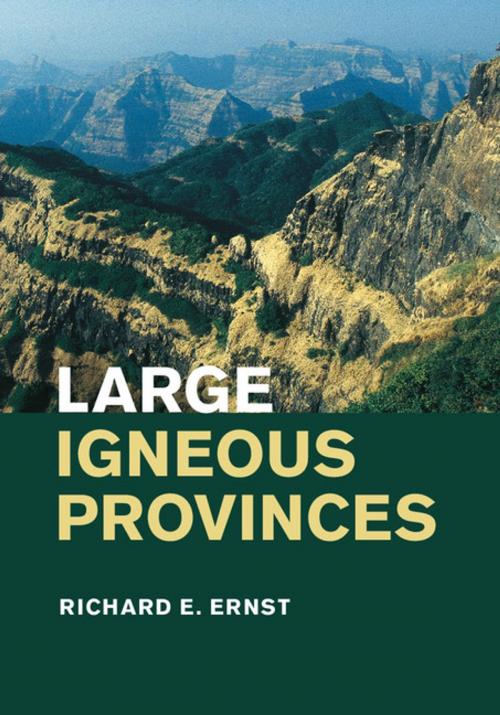| Author: | Richard E. Ernst | ISBN: | 9781316053409 |
| Publisher: | Cambridge University Press | Publication: | September 25, 2014 |
| Imprint: | Cambridge University Press | Language: | English |
| Author: | Richard E. Ernst |
| ISBN: | 9781316053409 |
| Publisher: | Cambridge University Press |
| Publication: | September 25, 2014 |
| Imprint: | Cambridge University Press |
| Language: | English |
Large igneous provinces (LIPs) are intraplate magmatic events, involving volumes of mainly mafic magma upwards of 100,000 km3, and often above 1 million km3. They are linked to continental break-up, global environmental catastrophes, regional uplift and a variety of ore deposit types. In this up-to-date, fascinating book, leading expert Richard E. Ernst explores all aspects of LIPs, beginning by introducing their definition and essential characteristics. Topics covered include continental and oceanic LIPs; their origins, structures, and geochemistry; geological and environmental effects; association with silicic, carbonatite and kimberlite magmatism; and analogues of LIPs in the Archean, and on other planets. The book concludes with an assessment of LIPs' influence on natural resources such as mineral deposits, petroleum and aquifers. This is a one-stop resource for researchers and graduate students in a wide range of disciplines, including tectonics, igneous petrology, geochemistry, geophysics, Earth history, and planetary geology, and for mining industry professionals.
Large igneous provinces (LIPs) are intraplate magmatic events, involving volumes of mainly mafic magma upwards of 100,000 km3, and often above 1 million km3. They are linked to continental break-up, global environmental catastrophes, regional uplift and a variety of ore deposit types. In this up-to-date, fascinating book, leading expert Richard E. Ernst explores all aspects of LIPs, beginning by introducing their definition and essential characteristics. Topics covered include continental and oceanic LIPs; their origins, structures, and geochemistry; geological and environmental effects; association with silicic, carbonatite and kimberlite magmatism; and analogues of LIPs in the Archean, and on other planets. The book concludes with an assessment of LIPs' influence on natural resources such as mineral deposits, petroleum and aquifers. This is a one-stop resource for researchers and graduate students in a wide range of disciplines, including tectonics, igneous petrology, geochemistry, geophysics, Earth history, and planetary geology, and for mining industry professionals.















